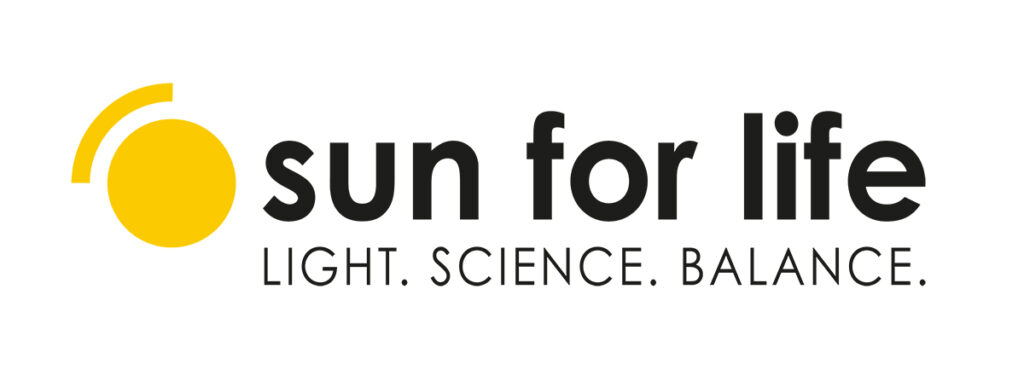Sun for your health – the natural power of light
Don't be afraid of the sun – Its glow is more than just warmth and a tan. The sun often comes up in conversations about risks and warnings, but there’s another side to the story.
Moderate exposure to UV radiation – both natural and artificial – brings a range of real, scientifically confirmed benefits for physical and mental health, as well as overall well-being.
Consciously enjoying the sun’s benefits can be a simple way to improve your quality of life.
Sun and health: A natural boost of happiness – hormones triggered by light
Sunlight helps our brains release key neurotransmitters and hormones that influence our mood, sleep, and energy levels:
- Endorphins, known as “feel-good hormones,” relieve pain and elevate mood. They’re produced through sunlight exposure, physical activity, and pleasurable experiences, like tanning.
- Serotonin, often linked with depression when deficient, also rises with UV exposure. It helps regulate mood and maintain emotional balance.
- Melatonin, the sleep hormone, is naturally regulated by the cycle of light and darkness. Proper daylight exposure supports a healthy circadian rhythm, leading to better sleep and recovery.
That’s why gloomy days or long winters can leave us feeling low on energy and emotionally drained – and it’s no coincidence.
Vitamin D – the hormone of life – powered by sunlight
One of the most well-known benefits of UVB exposure is the natural synthesis of vitamin D in the skin. Though commonly called a vitamin, biologically it acts like a hormone and influences dozens of bodily functions.
Vitamin D:
- Aids calcium and phosphorus absorption, supporting bones and teeth.
- Regulates the immune system, reducing the risk of infections, autoimmune diseases, and inflammation.
- Has anti-cancer properties – playing a role in protecting against colorectal, breast, prostate, and other cancers,
- It supports the nervous system, improves mood, and protects against neurodegenerative diseases.
Importantly, 80–90% of our vitamin D needs come from the sun, not food. Supplements can help, but they don’t replace natural biosynthesis.
Cardiovascular health – natural support for the heart
UV light stimulates the release of nitric oxide (NO) from skin stores into the bloodstream. This molecule acts as a natural vasodilator, lowering blood pressure and improving circulation. The effects?
- Better oxygen delivery to tissues
- Lower risk of heart attacks, strokes, and atherosclerosis
- Potential reduction in blood pressure
In an era of rising heart disease and hypertension, responsible sun exposure can be a natural way to support cardiovascular health.
Immunity – strengthened by sunlight
Studies show UV light can act as a modulator of the immune system. That means:
- In small doses, it boosts immune defences by enhancing the activity of immune cells,
- It may reduce symptoms of autoimmune conditions such as multiple sclerosis, psoriasis, and Crohn’s disease.
- It helps the body fight infections (like the flu or COVID-19) by balancing cytokine levels and supporting lymphocyte activity.
Especially in autumn and winter, sunlight becomes a natural support for immunity, if we don’t cut it off completely.
Protection against modern diseases
Researchers around the world are uncovering more links between UV exposure (and vitamin D levels) and the risk of serious diseases, including:
- Cancers: colon, breast, prostate, lung, lymphoma, leukaemia,
- Neurological conditions: dementia, Alzheimer’s, depression,
- Metabolic disorders: type 2 diabetes, obesity,
- Bone diseases: osteoporosis, rickets
Autoimmune diseases: MS, lupus, rheumatoid arthritis
And importantly, many of these benefits are not solely due to vitamin D – other mechanisms triggered by UV light at the cellular and genetic level also play a role.
Moderation – the golden rule
As with risks, the key to reaping benefits is moderation. Short, regular doses of sunlight (without burning) offer the greatest advantages.
Just a few minutes of daily sun on your face, arms, or legs can make a difference. And if that’s not possible, responsible use of sunbeds under controlled conditions may be an alternative, as long as you stay within safe UV exposure limits.
Summary: 7 benefits of light exposure
- Improved mood and sleep thanks to endorphins, serotonin, and melatonin
- Natural vitamin D production – supporting bones, immunity, and the nervous system
- Better circulation and heart health through nitric oxide release
- Immune system regulation – reducing infection and autoimmune risks
- Protection against diseases of modern life: cancer, depression, diabetes, dementia
- Prevention support for osteoporosis and rickets
- A way to improve your quality of life.
Source: ESA “White Book No2” – https://europeansunlight.eu/cms/wp-content/uploads/2022/05/ESA_White-Book-No.2_The-Positive-Effects-of-Sunlight_2022.pdf
